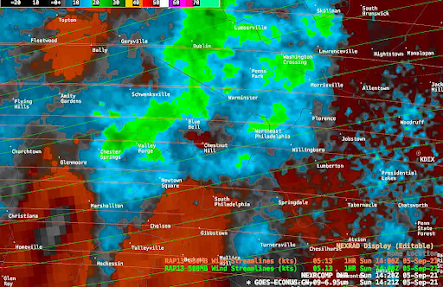Is It Going to Rain This Weekend?
Introduction:
One of the age-old questions that can leave us feeling uncertain and anxious is whether it will rain over the weekend. Our plans and outdoor activities often hinge on the weather forecast, making it a topic of great interest. In this blog post, we dive into the fascinating world of weather forecasting, explore the factors that influence it, and offer insights on how you can make more informed decisions about your weekend plans.
Understanding Weather Forecasting:
Weather forecasting is a complex science that combines meteorological data, computer models, and the expertise of meteorologists to predict upcoming weather conditions. By analyzing atmospheric patterns, temperature changes, wind directions, and other variables, meteorologists strive to provide accurate forecasts.
Factors Affecting Rain Prediction:
Atmospheric Conditions: Understanding the state of the atmosphere is crucial in predicting rain. Meteorologists analyze factors such as humidity, pressure systems, and temperature gradients to determine the likelihood of rainfall.
Satellite Imagery: Satellites orbiting the Earth provide valuable data for weather prediction. By capturing images of cloud formations, meteorologists can track storm systems and assess their potential impact on a specific region.
Doppler Radar: Doppler radar systems enable meteorologists to observe precipitation patterns, measure rainfall intensity, and detect severe weather conditions. This technology plays a vital role in forecasting rain and issuing timely warnings.
Computer Models: Advanced computer models utilize complex algorithms to simulate weather patterns and predict future conditions. These models integrate data from various sources to generate forecasts, but it's important to note that they are not infallible and can sometimes yield varying results.
Making Sense of the Forecast:
While weather forecasting has come a long way, predicting rain accurately for a specific location and time can still be challenging. Several factors contribute to the uncertainty, such as the dynamic nature of weather systems and the potential for localized variations. Nevertheless, there are steps you can take to make sense of the forecast and plan accordingly:
Check Multiple Sources: Consult multiple weather forecasting sources to compare predictions. This can help you identify trends and commonalities, providing a more reliable outlook.
Keep an Eye on Updates: Weather forecasts evolve as new data becomes available. Stay informed by checking for updates closer to the weekend to get the most accurate information.
Consider Probability: Weather forecasts often include a percentage of rain probability. This figure represents the likelihood of rainfall occurring. Assessing this probability can help you gauge the potential impact on your plans.
Localize the Forecast: Remember that weather conditions can vary within a region. Pay attention to localized forecasts or consult weather apps that provide forecasts specific to your area.
Be Prepared: Even with the most accurate forecast, weather can be unpredictable. Always be prepared for sudden changes by carrying appropriate gear like umbrellas or raincoats.
Conclusion:
In the quest to uncover whether it will rain over the weekend, we must acknowledge the intricacies of weather forecasting. While meteorologists employ advanced tools and models to predict rain, some level of uncertainty remains. By understanding the factors that influence weather forecasts and adopting a proactive approach, we can navigate the weekend with greater confidence. So, whether rain or shine, embrace the unpredictability of the weather and make the most of your plans.






